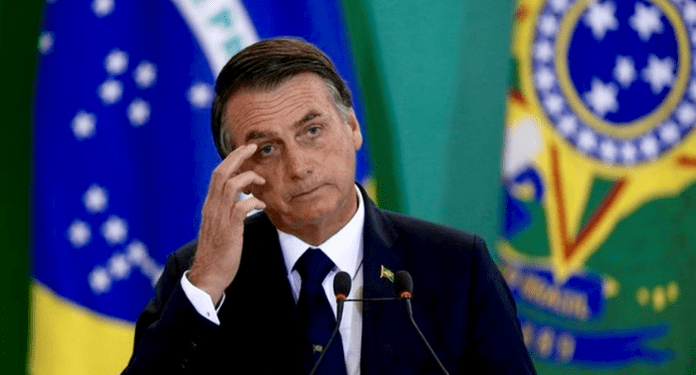The sports betting market continues to grow worldwide, with Brazil being a major focus for companies in the sector. Although our country has a high engagement rate with the modality and generates large revenues, there is still no adequate regulation.
The segment was approved in 2018 by the then president, Michel Temer, and had a period of two years – which was extended for another two – to be regulated. However, that deadline expired this Monday, December 12th.
President Jair Bolsonaro did not sign the decree to regulate the activity in time and, as a result, the national market will continue with an uncertain and tax-free future. VEJA published an article that portrays this scenario and details the next steps of this industry in Brazil.
Check out the news about sports betting in full below:
President Jair Bolsonaro did not sign the decree that regulates the activity of sports betting, whose validity expired this Monday, December 12. As a result, the market that turns billions of reais annually in Brazil remains with a cloudy, tax-free and, for many, chaotic future.
Sports betting, formally known as fixed-odds betting, was legalized after the enactment of Law 13,756, in December 2018, during the government of Michel Temer. The law stipulated a period of two years, extendable for another two years, for the activity to be regulated. This is the deadline that expired this Monday.
Since legalization, the market’s annual revenue has jumped from 2 to 15 billion reais. In 2022, bookmakers occupy space on television, in professional competitions and on the shirts of major football teams, in addition to hiring Brazilian sports icons as poster boys. It is estimated that more than 500 companies offer their services in the country.
However, all of them are waiting for regulation to be able to operate within Brazil. The 2018 law says that, for a sports betting house to have a Brazilian CNPJ, it would need to obtain a license from the Ministry of Economy. Otherwise, it would be punished by the Criminal Misdemeanor Law. The price and terms of the license would be determined by regulation. Likewise, the decree would also establish regulatory bodies for the activity, requirements for monitoring bets against manipulation of results, policies to combat money laundering and principles of responsible gaming — in practice, this is what makes the market in the country possible.
Without regulation, companies operate with CNPJs from outside the country, most in offshore companies, and do not use “.com.br” on their websites. Therefore, at least in theory, the money invested by the bettor leaves the country, as well as its reward also comes from abroad. This means that the activity is not inspected by Brazilian bodies, that any legal problems cannot be resolved in the Brazilian courts and that companies do not pay taxes to the Federal Revenue Service. It is estimated that, if it were regulated, the activity could collect about a third of its revenues in taxation alone, in addition to creating new jobs and generating other revenues. The license alone, for example, would cost 25 million reais for each bookmaker.
“Regulation would only bring benefits to Brazil: tax collection, job creation, protection for gamblers and consumers and legal security for betting operators”, says Udo Seckelmann, a lawyer specializing in the subject.
The decree with these rules, as well as a complementary Provisional Measure, had the approval of the sector, the Civil House and the Ministry of Economy, and had been ready for months, waiting for Bolsonaro’s signature. First, the president postponed the decision for fear of losing evangelical votes, normally opposed to gambling, on the eve of the election. But even after the defeat by Luiz Inácio Lula da Silva, the president ignored the regulation until the end of its validity.
In theory, not publishing the decree could frame Bolsonaro in a crime of responsibility, since the 2018 legislation stipulated the obligation of regulation, although experts say that this type of punishment is extremely unlikely.
“Regulation is also something operators want, nobody rows against it. That is why the government’s negligence is surprising”, says André Gelfi, managing partner of the Betsson Group in Brazil. “Only with regulation is it possible to achieve a healthy market ecosystem for all parties involved in the business”, adds Marcos Sabiá, CEO of Galera Bet’s operation.
In practice, non-regulation means that the market will continue in the same situation as the current one. Companies will continue to be headquartered abroad and generate billions of reais in Brazil, but without going through inspection or taxation, which increases the chances of scams, money laundering and manipulation of results.
There is still, however, a hypothesis that companies insist on operating in Brazil with the justification that the negligence of the public power cannot harm the market. In that case, a court injunction would be required asking for the release to explore the activity in national territory. There is no way to project whether the injunction would be accepted but, if so, the activity would have to be regulated by general Brazilian legislation, such as the advertising principles of the National Advertising Self-Regulation Council (Conar) and the Consumer Code. Inevitably, the absence of an exclusive tab for sports betting would cause holes in the legislation.
In summary, the non-publication of the decree at least brings about the continuity of a nebulous market, and opens up room for the activity to be explored in an even more chaotic way. However, it does not preclude the subject from being regulated in the future. Even if it involves some legal bureaucracy, the expectation is that the activity can be regulated with the issuance of a new decree, which can be made from the beginning of the term of president-elect Lula.















